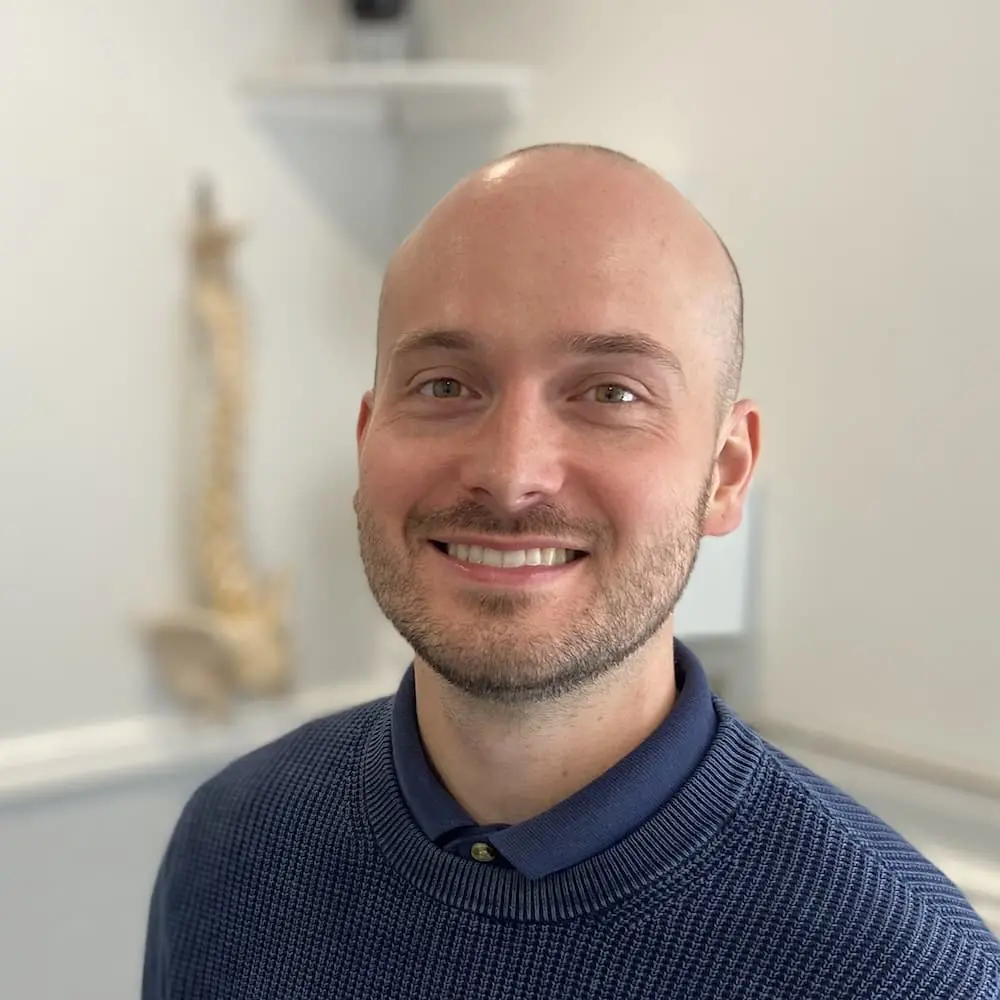Ankle Pain
What conditions are associated with ankle pain?
Ankle pain can arise from a variety of conditions or issues affecting the bones, ligaments, tendons, or muscles in the ankle area. Some common conditions associated with ankle pain include:
- Ankle Sprain: Overstretching or tearing of ligaments, lateral (outside) ankle sprain is most common
- Ankle Strain: Injury to the muscles or tendons around the ankle.
- Fracture: Broken bone in the ankle joint.
- Achilles Tendinitis: Inflammation of the Achilles tendon, often due to overuse.
- Arthritis: Osteoarthritis, rheumatoid arthritis, or gout affecting the ankle joint.
- Bursitis: Inflammation of the bursa, a fluid-filled sac that reduces friction in the joint.
- Posterior Tibial Tendon Dysfunction (PTTD): Dysfunction or injury of the tendon that supports the arch of the foot.
- Impingement Syndromes: Pinching or compressing of ankle or foot structures.
- Infections: Such as cellulitis affecting the skin around the ankle.
- Nerve Compression: Like tarsal tunnel syndrome, where the tibial nerve is compressed.
- Chronic ankle instability: Repetitive spain of the ligaments leading to ankle instability.
- Shin splints: Overuse injury to the shin bone or tendon.
Less commonly, ankle pain can be a referred symptom from problems in other areas of the body, such as the lower back. Always consult a healthcare provider for an accurate diagnosis and appropriate treatment if you’re experiencing persistent or severe ankle pain.
What are the symptoms of ankle pain?
Symptoms of ankle pain can vary depending on the underlying cause, but common indicators may include:
- Localised Pain: Pain specifically in the ankle region, which may vary from a dull ache to sharp, intense pain.
- Swelling: Puffiness or edema around the ankle joint.
- Redness or Warmth: Indicating inflammation or infection.
- Bruising: Particularly after trauma like a sprain or fracture.
- Stiffness: Limited range of motion in the ankle joint.
- Instability: Feeling of “giving way” while walking or standing.
- Tenderness: Sensitivity when pressing on the ankle area.
- Limping: Altered gait or walking pattern due to pain.
- Numbness or Tingling: Could be a sign of nerve involvement.
- Clicking or Popping Noise: Sometimes indicative of a structural issue in the ankle.
- Difficulty Bearing Weight: Trouble standing or walking due to pain or weakness.
What causes ankle pain?
Ankle pain can be caused by a variety of factors affecting the bones, ligaments, tendons, or muscles in the ankle area. Here are some common causes:
- Ankle Sprain: Overstretching or tearing of the ligaments in the ankle, usually due to sudden twisting or turning.
- Fracture: A broken bone in the ankle joint, often caused by trauma or impact.
- Achilles Tendinitis: Inflammation or degeneration of the Achilles tendon, usually due to overuse or age-related wear and tear.
- Arthritis: Conditions like osteoarthritis, rheumatoid arthritis, or gout can cause ankle pain.
- Strains: Injury to the muscles or tendons surrounding the ankle.
- Bursitis: Inflammation of the bursa, a fluid-filled sac that reduces friction in the joint.
- Posterior Tibial Tendon Dysfunction (PTTD): Dysfunction or injury of the tendon that supports the arch of the foot, causing pain and instability.
- Nerve Compression: Conditions like tarsal tunnel syndrome can cause tingling, numbness, and pain.
- Impingement: Pinching of tissues in the ankle joint, often due to repetitive motion or trauma.
- Infection: Cellulitis or osteomyelitis could be the source of ankle pain.
- Overuse or Repetitive Stress: Constant stress on the ankle without adequate rest can lead to pain.
What is the best treatment for ankle pain?
The best treatment for ankle pain depends on the underlying cause.
- Pain Relief: Over-the-counter pain medications like ibuprofen or acetaminophen can be used as directed to manage pain.
- Physiotherapy: Exercises may be recommended to strengthen the ankle, balance and improve range of motion.
For more severe or persistent cases:
- Corticosteroid Injections: May be used for arthritis or severe inflammation.
- Surgery: Procedures like fracture repair, ligament reconstruction, or arthroscopy could be considered in extreme cases.
- Imaging: X-rays, MRI, or CT scans may be required for a more accurate diagnosis.
Who should I see to fix ankle pain?
Depending on the severity and underlying cause, a diagnosis and rehabilitation can be varied. Specialists who commonly treat ankle pain include:
- Orthopaedic Surgeon: Specialises in the musculoskeletal system, including bones, joints, ligaments, and tendons.
- Physiotherapist: For guided exercises to improve strength and mobility.
- Podiatrist: Focuses specifically on foot and ankle conditions.
- Sports Medicine Specialist: For injuries related to physical activity.
Your healthcare provider may also recommend imaging tests such as X-rays, MRIs, or CT scans, physiotherapy, or other treatments based on the diagnosis.
Is exercise good for ankle pain?
Exercise can be beneficial for managing ankle pain, but the appropriateness of exercise largely depends on the underlying cause of the pain. For certain conditions like minor sprains or strains, specific exercises may help strengthen the ankle and improve range of motion. However, for other conditions like fractures or severe tendon injuries, rest and immobilisation may be necessary before any exercise can be safely introduced.
Will I need surgery for ankle pain?
Whether or not you will need surgery for ankle pain depends on the specific diagnosis, the severity of the condition, and how well it responds to conservative treatments. Surgery is typically considered a last resort when other treatment options have failed to provide relief or if the structural integrity of the ankle is compromised.
Here are some situations where surgery might be considered:
- Severe Fracture: If bones are displaced or the joint surface is damaged.
- Chronic ankle Instability: Repeated sprains or feelings of the ankle “giving way” despite conservative treatment.
- Severe Arthritis: In cases where joint damage is extensive and significantly impairs quality of life.
- Tendon Tears or Ruptures: Sometimes require surgical intervention if they do not heal with conservative management.
- Bone Spurs or Other Structural Abnormalities: That cause chronic pain or mobility issues.
- Joint Deformities: Such as those caused by certain types of arthritis or injury.
- Nerve Entrapment: Rarely, compressed nerves may require surgical decompression.
Chews Health top tip for ankle pain
Our Specialists
Posted onTrustindex verifies that the original source of the review is Google. Tennis elbow pain issue resolved in 3 physio - therapy sessions with Richard Saxton. Back to Badminton and Cricket as normal. Many thanksPosted onTrustindex verifies that the original source of the review is Google. I was referred to Chews Health for shockwave therapy for long term IT Band syndrome. Jon Shurr was excellent at talking me the through the process, setting my expectations and listening to my concerns. I just expected to receive the intervention with Jon but what I actually got was a patient-centred, holistic approach to my condition. Jon was excellent at setting physical challenges to test my knee pain and amending approaches when needed. Having completed my course of shock wave therapy I am feeling the improvements and continue to challenge my knees!! I am so pleased with the success of this therapy and am very grateful to Jon.Posted onTrustindex verifies that the original source of the review is Google. Outstanding care and a well-tailored set of stretches and exercises to address my problems and to keep me in shape. Thank you, Jack!Posted onTrustindex verifies that the original source of the review is Google. I have had a great experience here. I went for a knee injury and they’ve helped me so much build my strength back up. I would definitely recommend. The staff are lovely and really care about your improvements and your injury. Very thankful!Posted onTrustindex verifies that the original source of the review is Google. Highly recommended. My Physio (Jack initial assessment and follow up with Fio) completely understood the issue and worked with me to fix the issue. Thanks for you help.Posted onTrustindex verifies that the original source of the review is Google. I would highly recommend Chews Health. I have seen Jon for help with improving muscle strength in my arms and legs. I am in late 70's and presently seeing him every week because of hip pain. The exercises are helping me cope with an ongoing problem. Thank you. DotPosted onTrustindex verifies that the original source of the review is Google. Jack was incredibly helpful in advising on, and treating, my knee injury which was preventing me from training for the Manchester marathon. Jack was able to explain the cause in a really clear way and created a bespoke training and physio plan which enabled me to run the marathon without the level of pain I had been experiencing. Jack has also significantly improved my running form through his advice and the use of the high tech equipment and analysis software available in each session. Thanks to Jack for enabling me to complete the marathon (and enjoy it!) and for continuing to support on my running journey!Posted onTrustindex verifies that the original source of the review is Google. Great service. Jack was honest and straightforward explaining the rationale behind exercises/decisions. Pragmatic approach focused on getting me safely back to sportPosted onTrustindex verifies that the original source of the review is Google. Have waited a few months post-treatment to write a review - just to be certain! Quite simply, I can't recommend these guys highly enough. I went to them with two badly damaged knees (miniscus tears). Having had three arthroscopes over the years, I was completely resigned to needing surgical intervention again. The Chews team had different ideas. After showing me the latest research findings, they assured me my knees could be rehabilitated without a scalpel. I had just a handful of sessions with them and am delighted to report that, six months on, my knees are great! I'm running 5k twice a week (don't laugh, I loathe running and am no spring chicken) without any pain and have taken up tennis. Everyone at Chews is passionate about their subject, knowledgeable, reassuring and friendly. I wouldn't go anywhere else.Posted onTrustindex verifies that the original source of the review is Google. Couldn’t recommend Chews health enough. Jack’s experience and expertise allowed me to identify my problems and gradually build the strength and ability to return to running pain free.Google rating score: 5.0 of 5, based on 116 reviews




